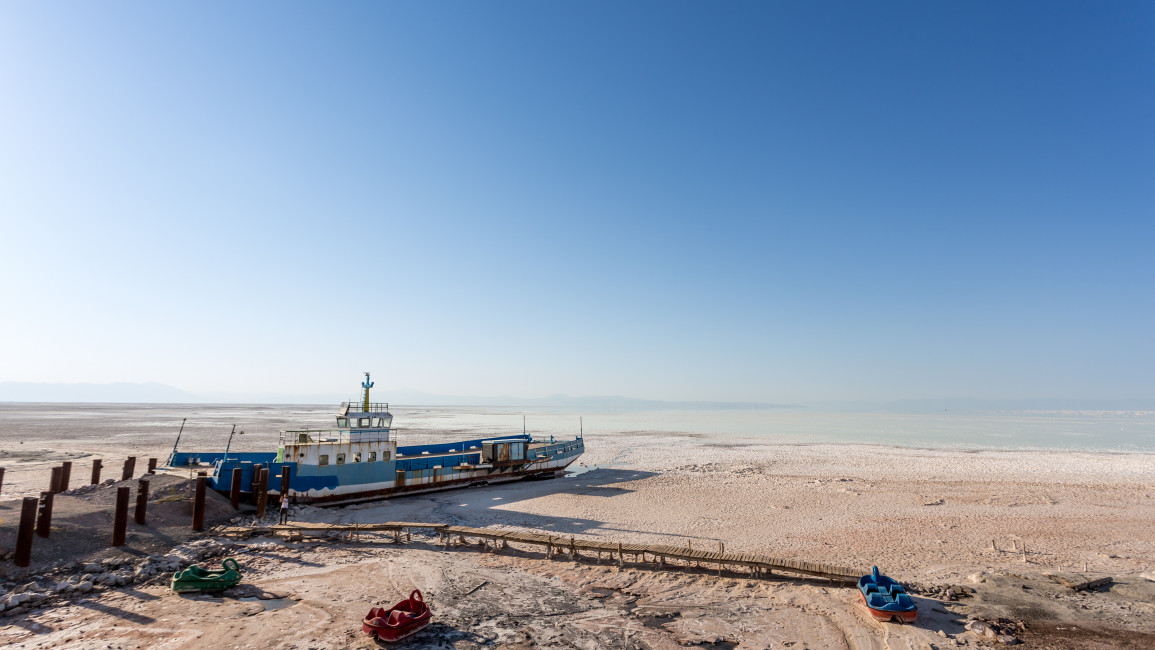Iran's Lake Urmia could completely dry up in next few years, warns official
Iran’s Lake Urmia is at risk of completely drying up in the next few years unless efforts to save the lake are prioritised over the needs of farmers, an environmental official warned on Tuesday.
"If the water quotas are not delivered and the approved plans are not fully realised, the lake will definitely dry up and there will be no hope for its recovery," said Arezoo Ashrafizadeh, the head of the wetlands unit in the environment department.
Disappearance of lake Urmia.
— Pouria Nazemi (@pnazemi) September 5, 2022
Septembre 2000 vs Septembre 2022.
In this case, the main reason is bad decision making, mismanagement and wrong policy choice rather than the global warming. pic.twitter.com/eAFt60pzRO
"According to the law, the energy ministry is obliged to provide the environmental water needs of Lake Urmia," she told Iran's ISNA news outlet.
"But the lake has not received its water entitlement due to a decrease in rainfall among other reasons."
Lake Urmia, in northwestern Iran, was once the largest lake in the Middle East and covered 5,000 square kilometres. Its water level has been steadily declining since the 1990s, according to the UN, because of a combination of reduced rainfall, over-farming, and rising temperatures.
The shrinking and drying up of the salt lake has threatened the habitats of several species of fauna and flora in the region, including shrimps, flamingos, and deer, and has led to pollution in nearby cities and farms.
Lake Urmia, which covers an area of kilometres , has dried up in Iran. pic.twitter.com/60ZkBfi6PX
— 301 Military (@301military) September 6, 2022
The lake has not yet completely dried up, said Ashrafizadeh, "but its northern and southern parts have been separated and about 1,000 square kilometres (386 square miles) of the lake remain".
The warning comes less than a decade after Iran and the UNDP launched a Japanese government-funded programme to save the lake and reverse one of the region's worst ecological disasters in the past few decades.
The programme saw some success by 2017 as the lake expanded to 2,300 kilometres, but then started shrinking again.
Earlier this year, police arrested several people who protested against the drying up of the lake, claiming that they had destroyed public property and disturbed security.
Iran is a largely arid country with long dry spells, which are expected to worsen due to the effects of climate change.



